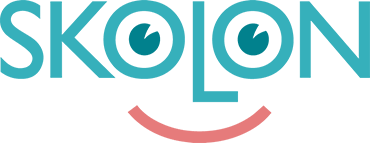6 May
When Kristinehamn Municipality decided to take the next big step towards digitalising learning, it was more than just the time savings for teachers, all digital resources being in one place or the extensive partnership with resource providers that persuaded the municipality to choose Skolon – the opportunity for better GDPR compliance was also a decisive factor.
“We wanted to take greater responsibility for ensuring equal access to good resources,” explains the municipality’s IT Strategist Michael Örnstedt. “If we are to focus strategically on increased use of digital resources, we also need to know that we have the technological infrastructure in place to back this up. This involves making the transition from uncontrolled, time-consuming manual administration of student and teacher accounts to automating the complex user lifecycle management of digital identities within a wide range of digital tools, in different areas of operations. Skolon is an incredibly important piece of the puzzle which addresses a significant part of the complexity involved in this. We also get an excellent insight via a clear visual interface into how the personal data we share – with both Skolon and the content providers that Skolon works with – is processed. We need to comply with GDPR fully, and not just on paper. Taken together, these are the main reasons why we chose to work with Skolon.”
“We need to ensure equal access to high quality content”
Kristinehamn Municipality has long been aware that it was time to take greater responsibility for learning resources, and realised that using a solution such as that offered by Skolon would enable them to focus strategically on digital resources to a higher degree.
“Basically, we need to take responsibility for satisfying our students’ and teachers’ rights to high quality resources. We need to ensure equal access to high quality content. We also want to ensure that we have joint guidance that we can adhere to, including for quality assuring resources. Digital resources bring new opportunities, but at the same time we face completely different challenges when it comes to how we distribute these compared to printed books. Skolon helps us to deal with this challenge in a satisfactory way.”
“Skolon is a bit like an onion, with layer after layer”
Skolon’s digital platform provides full control of licences and automates the administration of student and teacher accounts within a broad collection of tools from different providers. The school has full insight into who has access to what, and the administration is simpler when allocation and user lifecycle management are dealt with in one place, regardless of the resource and the number of licences. Michael takes a particularly positive view of this.
“When describing Skolon, you need to do this from several different perspectives. Skolon is a bit like an onion, with layer after layer. The visible outer layer consists of what teachers and students encounter: a portal that simplifies access to the resources we choose to use. Teachers can also get a better understanding of how students use these resources. The inner layers relate to Skolon’s technical management of the incredible complexity involved in creating, maintaining and closing personal accounts within a wide range of resources, in an effective, quality assured manner. Instead of dealing with this via individual integrations between a student administration system and a digital platform that’s used by all users, in this case this involves being able to meet corresponding needs for many different resources that are used to very different extents. This could be anything from a resource used by an entire organisation to one that’s used by an individual school or teaching group. From this perspective, Skolon acts as an integration hub with a clear visual interface that we can use to orchestrate all this. We sync our list of students with Skolon, and Skolon then deals with the rest.”
The importance of ensuring GDPR compliance
Skolon includes basic functionality that allows for the systematic working methods required in order for schools and municipalities to be able to ensure compliance with GDPR. For example, Skolon’s system automatically restricts the sharing of personal data to only those services that the individual user actually uses, even if they have been made available to the whole school.
“I get an excellent insight into how the personal data we share – with both Skolon and the content providers that Skolon works with – is processed. And this is perhaps one of the main reasons why we chose Skolon. We need to comply with GDPR fully, and not just on paper.”
In addition to this basic functionality, Skolon has also created a data visualisation tool to make it easier for schools to manage personal data. This visualisation gives a clear overview of which user data exists among the various content providers, and stopping data from all tools is also straightforward.
“The data visualisation tool is already one of the most important functions for us. Anyone who claims to be currently complying with GDPR without this type of infrastructure solution is either ignoring reality or failing to be fully aware of the challenge that this actually involves.”
The need for smooth administration of digital resources and user accounts
Michael explains how, in his role as an IT strategist, he has thought long and hard about the best way of distributing an ever-growing proportion of digital resources. He has been watching Skolon for a number of years, and has seen the digital platform’s rapid development.
“Distributing printed resources is relatively simple. Distributing digital resources in an effective and legally sound manner is a different matter entirely, as they are usually associated with unique user accounts. There is now a standard for data exchange between schools and content providers, but moving from a paper product to a working technical solution for all parties is not something that happens overnight. Understanding of the complexity involved is improving slowly but surely, and there are a number of initiatives other than Skolon that aim to resolve this issue. But I don’t feel that any of these address the bigger picture in the same way. Skolon was quick to understand the complexity of providing digital resources to students and teachers, and in my opinion is the solution that meets the overall need the best.”
Digital resources can fundamentally change teaching
Kristinehamn Municipality has just started using Skolon, and the idea was to implement the platform gradually during the spring before holding a broader discussion in the autumn on which resources the municipality wants to use jointly. However, just like many other projects, the process has been sped up as a result of Covid-19, and the municipality and Skolon had to start planning to launch sooner. Both the schools and the municipality look forward to a full start-up by the autumn semester.
“As well as the obvious and direct benefits of digital resources when it comes to multimodality and enhanced accessibility, there is also great potential for development in the slightly longer term. I see excellent opportunities for digital resources actually being able to fundamentally change teaching if we can be smart about harvesting the large volume of data that students consciously or unconsciously generate. This data is incredibly valuable, as it has the potential to offer both students and teachers new insights and learning support that were not previously possible. I know that some content providers are already working actively to refine this using AI, and I’m convinced that this trend will accelerate. We will see it in all industries that need continuous, effective skills provision, not just education.”
A well thought-out infrastructure does away with costly manual administration
Michael believes that content providers will do more digital business as their products evolve and we begin to understand and tackle the underlying challenges together.
“I don’t think we’ve seen the biggest benefits yet when it comes to digital resources, but at the same time I do see that we need to be serious about taking the plunge. If we don’t, it’ll be hard to influence developments. I would challenge both my client colleagues and all providers to dare to be visionary and to address the need for innovative digital solutions that radically change teaching processes. But development comes with a financial cost. If we can do away with costly manual administration and the support this leads to through well thought-out infrastructure, more resources can be invested in aspects that add value. For schools, this ultimately involves good quality teaching. For our suppliers, this involves supporting us in our work by delivering good products and developing the next generation of digital resources. Here, I would like to stress that we and our suppliers have a joint responsibility. I therefore believe that we need to think long and hard about the complexity involved in distributing digital resources to such a large number of individuals as is the case with schools. I certainly think we should look at what Skolon is in essence, and what the service can do to avoid unnecessary and costly obstacles. I don’t see any superior alternatives to Skolon on the market right now.”

